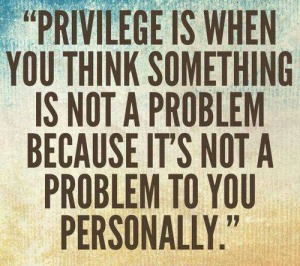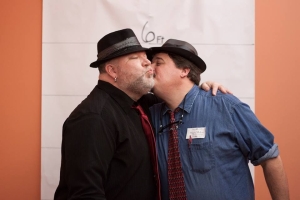 There are many things I could say about the Mississippi United Methodist Annual Conference this year. But at this moment, I want to share about the prayer vigil for racial reconciliation that a group of us participated in on Friday night, June 5, after the ordination service, just outside the convention center.
There are many things I could say about the Mississippi United Methodist Annual Conference this year. But at this moment, I want to share about the prayer vigil for racial reconciliation that a group of us participated in on Friday night, June 5, after the ordination service, just outside the convention center.
The prayer vigil was a timely and much needed witness to the tragedies of racism we have witnessed in our nation very publicly in the past few years but which are only the most recent of a long list of such tragedies. For white people, it’s not just the sins of our ancestors that are visited upon the nation in this time of turmoil, it is our own complicity in systems that continue to enslave, incarcerate, oppress, and kill people of color.
Lest we excuse ourselves because we’re United Methodists and our denomination has such a clear, unequivocal stance on racism, let it be known that there are congregations in the Mississippi Conference that still refuse appointments of clergy due to the clergy person’s race or that of their family. Still, today. Yet, we don’t hear about these ugly truths or any steps made to address the racism that still plagues us.
That’s where the prayer vigil comes in – hopefully one of many – for we cannot repair our brokenness without the help of a gracious God. And we cannot expect reconciliation without first telling the truth. We cannot hope for healing if we fail to acknowledge and honor the painful wounds inflicted on our brothers and sisters of color. We should not ask for forgiveness without offering true repentance. And at the end of the day, we cannot claim our desire for reconciliation is genuine if we do not make reparations.
For me, this vigil was the most important thing that happened at this annual conference. It was the space where I could feel God with us – loving us in our brokenness and calling us to wholeness. And I could feel us being with God – opening our hearts to break when God’s heart breaks, opening our ears to hear the cries that God hears. I also felt the humility of conviction when I saw how few African-American United Methodists joined us – an absence that reveals how segregated our social and religious circles are, an absence that challenges us to be more intentional in building relationships with people of all races.
For the vigil, we gathered in a circle with a wooden cross at the head. We stood and knelt, holding hands at times. We sang, confessed, read Scripture, and prayed. We wrote our prayers, laments, and hopes on sheets of paper that we then hung on the nails of the cross. Those prayers of the people will be placed on one of our church altars until we feel it’s time to burn them as an offering up to God. In the interim, I hope those prayers will multiply and take root in our hearts, becoming promises between us and God that we will do our part in this holy work.
To read the litany and prayer for the vigil, click here.
Many thanks to our MS chapters of MFSA and Peace with Justice for organizing this vigil.
For a downloadable resource from GCORR called “25 Things Your Congregation Can Do To Affirm Diversity and Challenge Racism, click here.
 tinction made between “advocacy” and “support” when a religious organization declined an LGBTQ group use of their space. They were willing to have a support group but not an advocacy group to meet there. It struck me, because I believe their statement doesn’t just reflect how they feel – I think it’s true for many other churches and people, too. Hence, their distinction between advocacy and support sheds some light on why our society is in the shape it’s in. You see, we’re much better at charity and comfort measures than we are at change and empowerment. While I can follow the rationale for making the distinction (such as fearing the fallout we might experience if we look too much like activists), I think it’s a distinction that serves to delay justice. It’s a distinction that allows people of privilege to excuse themselves from challenging the system. I say this as a person of privilege. I’m a white person living in the former Confederacy, where I still hear people make sweeping uninformed claims about black people and other non-whites, where Blacks are racially profiled and assumed guilty until proven innocent on a regular basis. I’m a Christian living in the Bible Belt, where city meetings often open with Christian prayer and elected officials quote the Bible to defend their opinions. I’m an able-bodied person living in a city where the City Hall isn’t even compliant with the Americans with Disabilities Act and the condition of the sidewalks often present trip hazards for visually impaired people and forces people in wheelchairs to ride in the street.
tinction made between “advocacy” and “support” when a religious organization declined an LGBTQ group use of their space. They were willing to have a support group but not an advocacy group to meet there. It struck me, because I believe their statement doesn’t just reflect how they feel – I think it’s true for many other churches and people, too. Hence, their distinction between advocacy and support sheds some light on why our society is in the shape it’s in. You see, we’re much better at charity and comfort measures than we are at change and empowerment. While I can follow the rationale for making the distinction (such as fearing the fallout we might experience if we look too much like activists), I think it’s a distinction that serves to delay justice. It’s a distinction that allows people of privilege to excuse themselves from challenging the system. I say this as a person of privilege. I’m a white person living in the former Confederacy, where I still hear people make sweeping uninformed claims about black people and other non-whites, where Blacks are racially profiled and assumed guilty until proven innocent on a regular basis. I’m a Christian living in the Bible Belt, where city meetings often open with Christian prayer and elected officials quote the Bible to defend their opinions. I’m an able-bodied person living in a city where the City Hall isn’t even compliant with the Americans with Disabilities Act and the condition of the sidewalks often present trip hazards for visually impaired people and forces people in wheelchairs to ride in the street.


